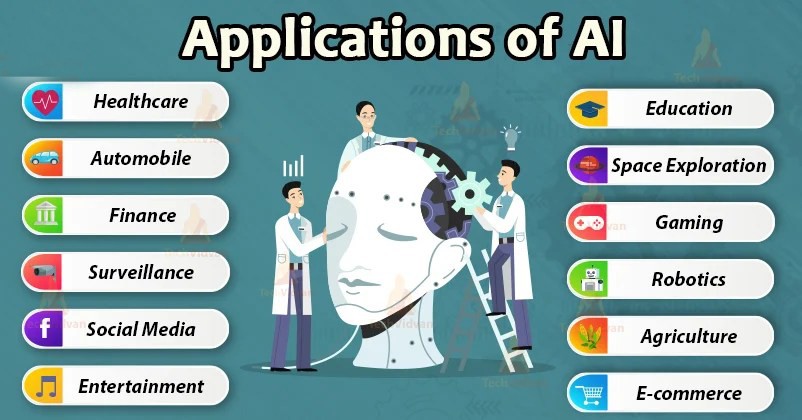Artificial Intelligence (AI) technology is revolutionizing the way we live and work. From enhancing productivity to automating mundane tasks, AI is becoming an integral part of our daily lives. This blog will delve into the world of AI technology, exploring its achievements, pros and cons, and some of the most useful AI tools available today.
What is AI Technology?
AI technology refers to the simulation of human intelligence in machines programmed to think and learn like humans. It encompasses various subfields, including machine learning, natural language processing, robotics, and computer vision. By leveraging vast amounts of data, AI can analyze patterns, make decisions, and even predict future outcomes.

Achievements in AI Technology
The advancements in AI technology have led to remarkable achievements across various sectors:
- Healthcare: AI algorithms are being used to diagnose diseases more accurately than ever before. For instance, IBM’s Watson can analyze medical data and suggest treatment options for cancer patients.
- Finance: Financial institutions utilize AI for fraud detection and risk assessment. Machine learning models can identify suspicious transactions in real-time.
- Transportation: Self-driving cars are a testament to the power of AI. Companies like Tesla are at the forefront of developing autonomous vehicles that can navigate complex environments.
- Entertainment: Streaming services like Netflix use AI algorithms to recommend content based on user preferences, enhancing viewer engagement.
- Customer Service: Chatbots powered by AI are transforming customer interactions by providing instant support and resolving queries efficiently.
Pros of AI Technology
AI technology offers numerous advantages that can significantly impact our lives:
- Increased Efficiency: By automating repetitive tasks, AI allows employees to focus on more strategic activities, boosting overall productivity.
- Enhanced Decision-Making: With access to vast amounts of data, AI can provide insights that help businesses make informed decisions quickly.
- Personalization: AI enables personalized experiences for users by analyzing their behavior and preferences. This is evident in e-commerce platforms that recommend products based on past purchases.
- Cost Savings: Automating processes reduces operational costs for businesses. For example, using AI for inventory management can minimize waste and optimize stock levels.
- Improved Safety: In industries like manufacturing and construction, AI-powered robots can perform dangerous tasks, reducing the risk of accidents.
Cons of AI Technology
Despite its benefits, there are also challenges associated with AI technology:
- Job Displacement: As automation increases, there is concern about job loss in certain sectors. Many fear that machines will replace human workers in various roles.
- Ethical Concerns: The use of AI raises ethical questions regarding privacy, bias in algorithms, and accountability for decisions made by machines.
- High Implementation Costs: Integrating AI into existing systems requires significant investment in infrastructure and talent.
- Dependence on Data: The effectiveness of AI relies heavily on the quality of data it processes. Poor data can lead to inaccurate predictions and outcomes.
- Security Risks: As with any technology, there are risks associated with cyberattacks targeting AI systems that could lead to data breaches or manipulation.
Useful AI Tools
Several innovative tools harness the power of AI to enhance productivity across various domains:
- ChatGPT: This conversational agent can generate human-like text responses, making it useful for content creation, customer service interactions, and brainstorming ideas.
- TensorFlow: An open-source machine learning framework developed by Google that allows developers to build and train machine learning models efficiently.
- IBM Watson: A suite of enterprise-ready AI services designed to help businesses integrate advanced analytics into their operations for improved decision-making.
- Hugging Face Transformers: A library providing pre-trained models for natural language processing tasks like translation and summarization.
- DALL-E 2: An image generation tool that creates visuals from textual descriptions, showcasing the creative capabilities of generative models.
- Otter.ai: A transcription tool that uses speech recognition to convert spoken language into written text in real time—ideal for meetings or lectures.
- Grammarly: An advanced writing assistant that uses natural language processing to help users improve their writing by suggesting corrections and enhancements.
- Canva’s Magic Write: An integrated tool within Canva that utilizes generative text capabilities to assist users in creating marketing copy or social media posts effortlessly.
- Zapier: An automation tool that connects different apps using workflows powered by machine learning algorithms—streamlining repetitive tasks across platforms.

Conclusion
AI technology is reshaping our world in profound ways. While it presents numerous advantages such as increased efficiency and enhanced decision-making capabilities, it also poses challenges related to job displacement and ethical concerns. As we continue to innovate and integrate these technologies into our lives, it is crucial to strike a balance between harnessing their potential while addressing the associated risks.
By staying informed about advancements in AI technology and utilizing useful tools effectively, businesses and individuals alike can thrive in this rapidly evolving landscape. The future is bright for those who embrace these changes with an open mind!
Read more about Artificial Intelligence on Wikipedia
To explore UK visa types, Click Here